Skin Cancer
Skin cancer arises when abnormal cells grow uncontrollably in the skin, often beginning with changes in moles or new growths. The three most common types of skin cancer are melanoma, basal cell carcinoma, and squamous cell carcinoma. Early detection is crucial for effective treatment and achieving the best outcomes. It is important to have a full-body skin examination by a dermatologist annually.
At Lupton Dermatology, we are dedicated to helping you achieve and maintain optimal skin health through education, prevention, and early detection of skin cancer. Our commitment to skin health and positive outcomes is at the core of our practice, which is why we offer a total body skin exam as part of your annual appointment.
Total Body Skin Exams (TBSEs) enable our providers to thoroughly assess the overall health of your skin and identify any conditions or spots that may require attention.
Learn more about skin cancer below and schedule your appointment with Lupton Dermatology today.
Examples of Skin Cancer
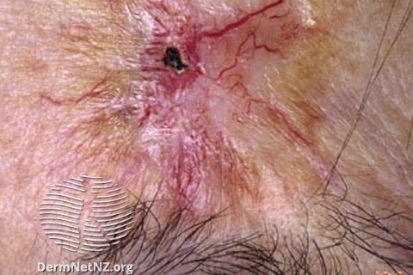
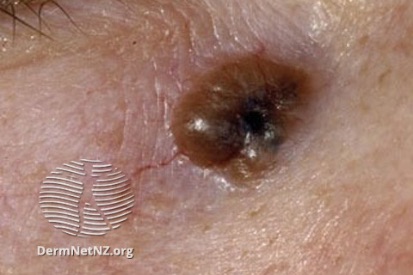
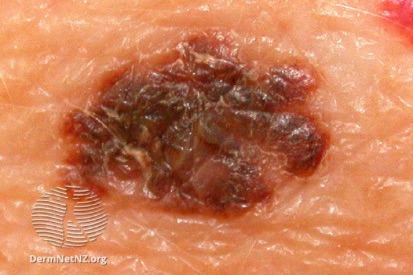
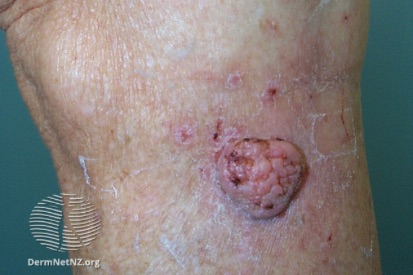
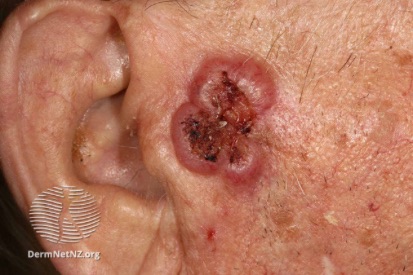
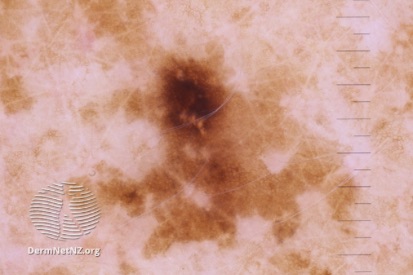
Symptoms of Skin Cancer
- For basal cell carcinoma: usually occurs on sun-exposed areas of the face, neck, and body. Basal cell carcinoma appears as a waxy, whitish, or pink bump, or a flat lesion that may be pink, brown or flesh-toned.
- For squamous cell carcinoma: occurs most often on sun-exposed areas such as the face, ears, neck, hands, and body. Squamous cell carcinoma can appear as a solid, red bump or a flat lesion that has a scaly or crusty feel.
- For melanoma: can appear anywhere on the body, in normal skin or in a mole that then becomes cancerous. Melanoma can have many presentations, so any new or changing spot on the skin should be evaluated.
What Causes Skin Cancer?
- Skin cancer can occur in anyone, anywhere, but is more likely to occur in people whose work or lifestyle exposes them to direct sunlight on a regular basis, or whose childhood or youth was filled with sun exposure.
- Though skin cancer occurs less often in people with darker complexions than in those with fair complexions, dark-skinned people are at higher risk for cancer in areas of the body not normally exposed to the sun.
Skin Cancer Prevention
Our skin experts are leading the movement in skin health management and prevention by offering an annual Total Body Skin Exam to everyone we treat, aiming to detect skin cancer early and ensure comprehensive skin care.
Skin Cancer FAQs
Skin cancer is a type of cancer that begins in the skin cells. It usually develops on skin exposed to the sun but can also occur in areas that are not exposed. There are three main types of skin cancer: basal cell carcinoma, squamous cell carcinoma, and melanoma. Basal cell carcinoma and squamous cell carcinoma are more common and have a higher cure rate, while melanoma is less common but more aggressive.
The primary risk factor for skin cancer is exposure to ultraviolet (UV) radiation from the sun or tanning beds. Other risk factors include having fair skin, a history of sunburns, a family history of skin cancer, a weakened immune system, and exposure to certain environmental factors such as arsenic.
The signs of skin cancer can vary depending on the type. Common signs include changes in the size, shape, color, or texture of a mole or spot on the skin. Itching, tenderness, or bleeding may also occur. It's crucial to be vigilant and seek medical attention if you notice any unusual changes on your skin.
Treatment for skin cancer depends on the type, size, and location of the cancer, as well as the patient's overall health. Common treatment options include surgical removal of the cancerous tissue, radiation therapy, and, in some cases, chemotherapy or immunotherapy. Early detection is key to successful treatment, so regular skin checks and prompt medical attention are crucial.
You should apply sunscreen every day, even on cloudy days and during the winter, UV rays can still penetrate the clouds and cause skin damage. Sunscreen needs time to be absorbed into the skin. We recommend applying it at least 15-30 minutes before going outdoors and reapplying every two hours.
A total body skin exam by a dermatologist is crucial for several reasons. Firstly, it serves as a proactive measure for the early detection of skin cancers, including melanoma, the deadliest form of skin cancer. Skin cancers are often highly treatable when identified at an early stage. A comprehensive examination allows the dermatologist to assess moles, birthmarks, and any unusual skin changes that may indicate potential issues.
Secondly, a dermatologist can identify and diagnose various skin conditions, including dermatitis, psoriasis, and infections. Early detection and treatment of these conditions can prevent them from escalating into more serious health issues.
Furthermore, a total body skin exam provides an opportunity to discuss and address any concerns or questions about skin health, sun protection, and skincare routines. Dermatologists can offer valuable guidance on skin cancer prevention, emphasizing the importance of sun protection measures, such as wearing sunscreen and protective clothing.
Regular skin exams become especially vital for individuals with risk factors, such as a family history of skin cancer, a personal history of sun exposure, or fair skin. Overall, a total body skin exam is a proactive and comprehensive approach to maintaining skin health, preventing skin cancers, and addressing any skin-related issues in a timely manner.
From Our QualDerm Family of Brands: What to Expect at a Total Body Skin Exam
Skin Cancer Treatments
- Mohs micrographic surgery
- Excisional surgery
- Cryotherapy (freezing)
- Currettage and Electrodessication
- Chemotherapy
- Radiation
Featured Products for Sun Protection
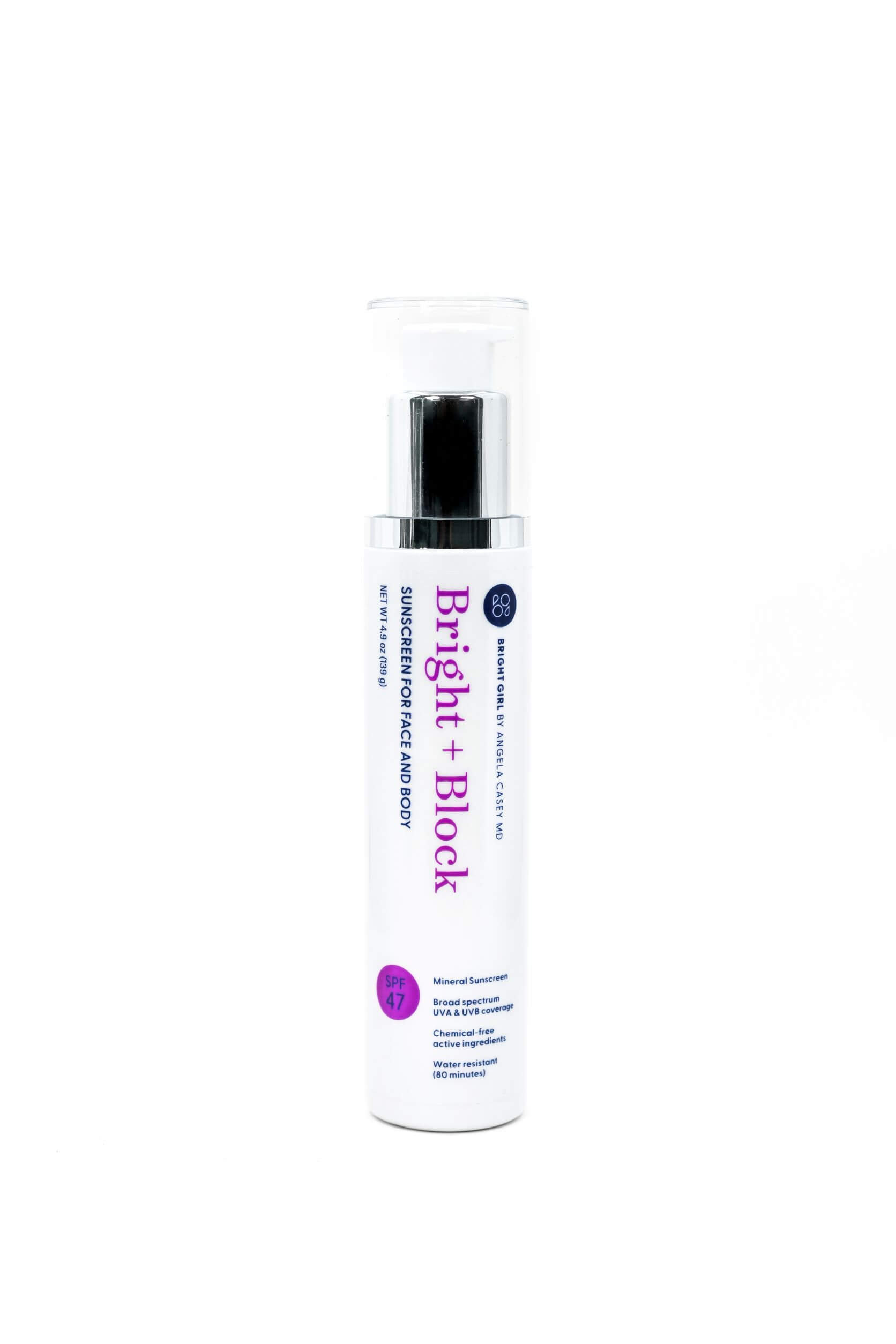
Bright+Block SPF 47 Mineral Sunscreen for Face and Body
Bright+Block SPF 47 mineral sunblock provides broad-spectrum UVA & UVB coverage through chemical-free active ingredients: Zinc oxide and Titanium Dioxide. This formulation goes on white to ensure complete coverage yet disappears completely, protecting skin from the sun’s damaging rays. Lightweight and water-resistant (80 minutes), this sunscreen works beautifully for all skin types. 4.9 OZ (139 G)
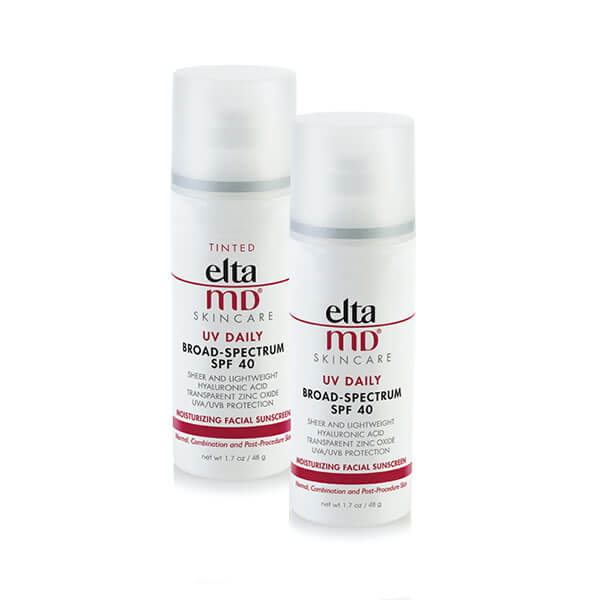
EltaMD UV Daily SPF 40 original
Serious UV protection and superior hydration join forces in this sheer facial sunscreen. EltaMD UV Daily has hyaluronic acid to boost moisture retention and diminish fine lines. This lightweight moisturizer with UV protection can be worn alone or under makeup. Choose from tinted and untinted formulas for use every day. 1.7 oz / 48 g
